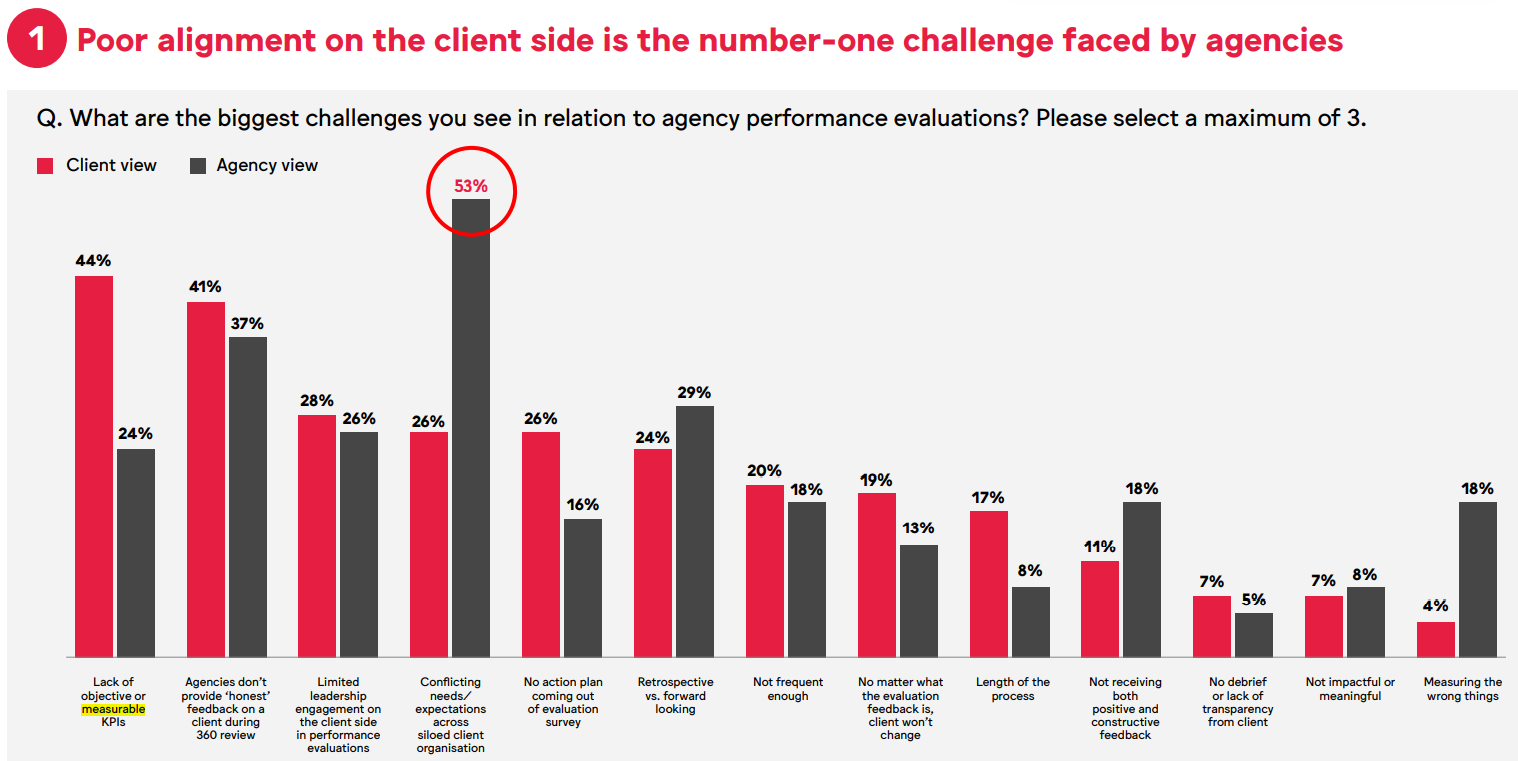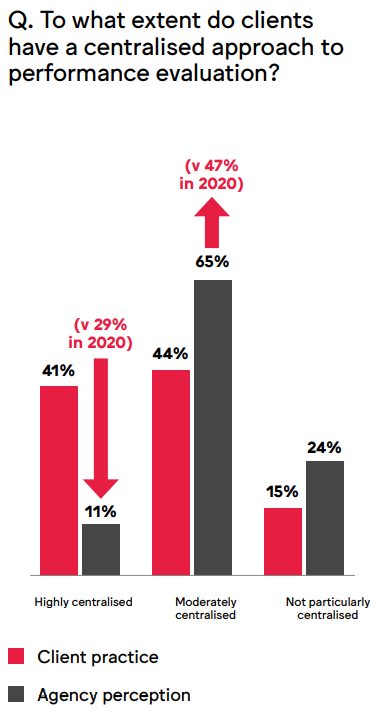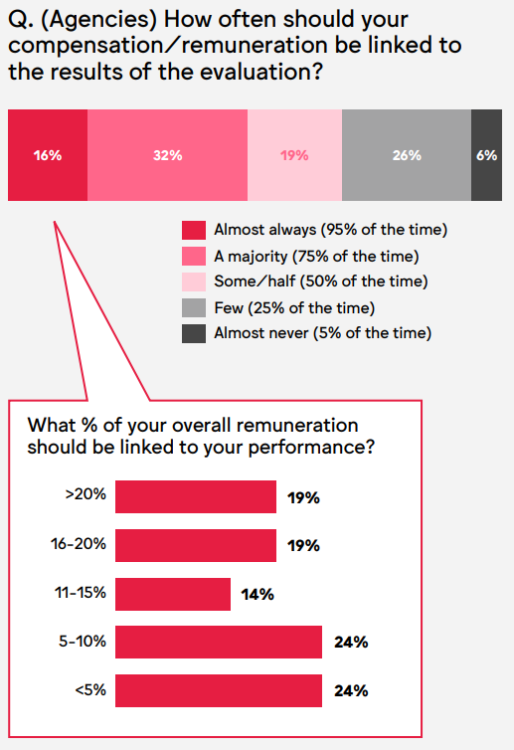WFA: agencies more comfortable being honest with clients

Agencies are increasingly comfortable with being honest with their advertiser clients when it comes to performance evaluation.
That is according to the most recent research from the World Federation of Advertisers (WFA), which found 68% of agencies are now comfortable telling their clients what needs changing, compared to just 45% two years ago.
Agencies also reported a slight uptick in qualitative performance being evaluated (56% compared to 54% in 2020).
However, the current mix of key performance indicators (KPIs) being evaluated is causing dissatisfaction among both clients and agencies. Though the top KPI for clients (“client satisfaction”) was also the top concern for agencies (92%), a plurality of advertisers (44%) ranked a “lack of measurable or objective KPIs” as their number one concern; 24% of agency respondents agreed.
“I would encourage clients to consider the amount of work/diligence leading up to the final deliverable,” wrote research company M&RR’s CEO John Bekier. “Many things can occur to get to the final deliverable (report or presentation) and that aspect of the work can often go unnoticed. Factor in all the work that leads up to the deliverable and factor in the amount of time given to complete.”
In-housing specialist agency Oliver’s US president Kristi VandenBosch further advised clients to not use the exact same form for all agency partners, writing: “not all business models and outputs are alike, by design.”
Agencies appear to be coming up short in terms of providing reciprocal feedback to clients; less than a third (29%) of agencies report not having the opportunity to provide any feedback to clients at all.
Meanwhile, a majority of agency representatives (53%) said that conflicting needs or expectations across siloed clients was their biggest concern. Just 26% of clients agreed.
The concern reflects a disconnect between how agencies and clients are perceiving clients’ centralisation of approach toward performance evaluation. Just 11% of agencies perceive clients’ performance evaluation as centralised, compared to 41% of agencies.
The report also found that a growing number of agencies are sharing their performance bonuses with the agency working team. Whereas just 27% of bonuses were shared with agency staff in 2020, 46% of agencies reported doing so in 2022.
The result has implications for retaining talent. The report reads: “Linking performance to compensation and ultimately having that trickle down to the people responsible for the work is one of the most effective ways to not to not only drive positive behaviour and shape meaningful partnerships, but also to retain talent.”
A July survey conducted by the WFA found that 77% media industry professionals admitted that there is “some” or “high” scarcity of talent in their organization.
The November survey did find, however, that agencies do not always find it appropriate to be paid based on their performance evaluations. While media agency clients link compensation to performance “almost always” (56%) or “a majority” of the time (15%), agency respondents were more mixed in how they feel they should be remunerated for their work.
The WFA’s Client-Agency Performance Evaluations 2022 study was conducted of over 90 respondents from 82 multinational organisations (comprised of 49 clients and 33 agencies). Advertiser respondents were responsible for more than $69bn in global adspend.








